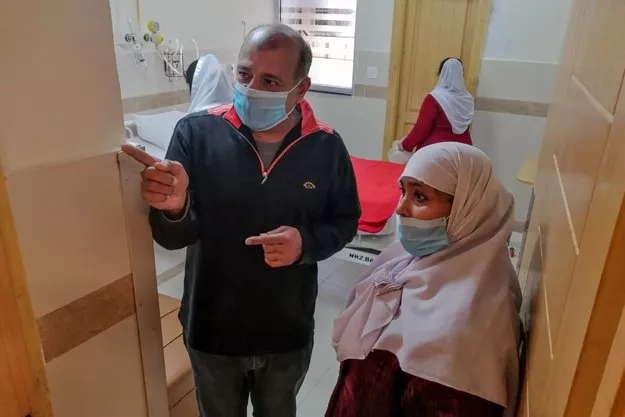Three suspected Coronavirus patients tested at PIMS
Top health official says he is personally overseeing screening at airports as the suspected patients arrive
ISLAMABAD: The Pakistan Institute of Medical Sciences (Pims) on Thursday dispatched for testing samples from three patients who are suspected to have contracted the Novel Coronavirus.The samples have been sent to the National Institute of Health (NIH), the hospital confirmed.
Pims’ spokesperson Dr Waseem Khawaja said that three people, including a Chinese national and two locals, had arrived at the hospital on Thursday with symptoms similar to those for the virus. They join the Chinese national who is already under treatment at the isolation ward set up in Pims.
Dr Khawaja added that lab reports for the admitted Chinese national have come back as negative.
Virus suspect at IIA
Meanwhile, a suspected Novel Coronavirus patient landed at the Islamabad International Airport on Thursday.
Identified as Sulaiman Khan, he arrived in the federal capital from Kunming in the Yunnan province of China.
During a screening, he was found to have a higher body temperature than normal. The staff of the health department immediately shifted him to the isolation ward.
After being provided with initial medical attention, he was shifted to the isolation ward in Pims.
A resident of Peshawar, Sulaiman complained of having a cough.
Dr Mirza overseeing screening
Separately, in a meeting of the Emergency Core Group on the Novel Coronavirus in Islamabad on Thursday, the Special Assistant to Prime Minister on Health Dr Zafar Mirza said that a comprehensive plan is in place to deal with the situation and to remain prepared as the situation evolves.
“I am personally overseeing the screening of travellers at airports and ensuring all protocols are in place,” Dr Mirza said, adding, “We have significantly increased the strength of health staff at airports to further augment the screening process.”
Chairing the meeting, Dr Mirza stressed that all necessary measures for preparedness and response to the public health challenges are being taken.
“There is no confirmed case of Novel Coronavirus in Pakistan,” he added.
The Emergency Core Group is monitoring the situation around the clock in coordination with all stakeholders, including the provincial governments. The meeting was attended by Federal Health Secretary Dr Allah Bakhsh Malik, NIH Executive Director Maj. General Dr Aamer Ikram and senior officials were present in the meeting.
Guidelines
The National Disaster Management Authority (NDMA) on Thursday issued guidelines for the public to follow to prevent an outbreak of the Novel Coronavirus.
An NDMA spokesperson said that the Coronavirus has caused numerous deaths in its origin city of Wuhan in China, and the viral disease is rapidly transferring amongst people through contact of droplets of the affected person.
The guidelines, he said, clearly mention that any person affected from flu and cough should cover their nose and mouth while coughing or sneezing with a tissue or flexed elbow to prevent the release of droplets openly in the air.
Moreover, it said that people should regularly wash their hands with soap and water or alcohol-based sanitizers.
"If you have flu symptoms, keep a distance of at least three feet (or 1 metre) from others as it can save healthy people from inhaling major droplets.
Avoid hugging or shaking hands if you have symptoms of flu, the spokesperson suggested, adding, that used tissues must be disposed of properly and immediately after use.
The person should remain careful in case they suffer from fever, cough, or difficulty in breathing. All such individuals must immediately consult a doctor to diagnose the problem.
In case a person displays symptoms of flu, they should stay home from work, school or crowded places until their health conditions improve, it added. Travel should also be avoided.
Published in The Express Tribune, February 7th, 2020.


COMMENTS
Comments are moderated and generally will be posted if they are on-topic and not abusive.
For more information, please see our Comments FAQ